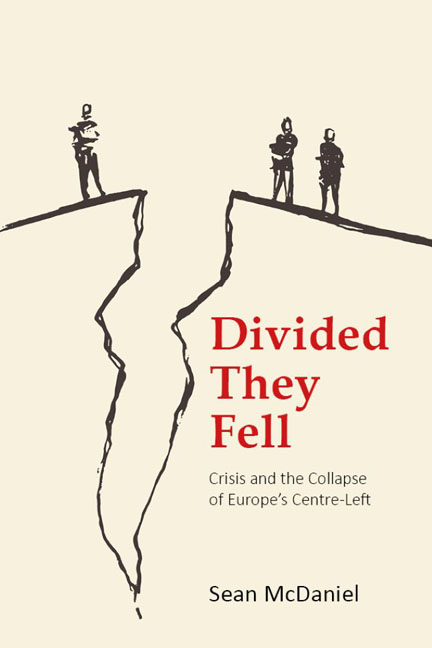Book contents
- Frontmatter
- Contents
- List of abbreviations
- Acknowledgements
- Introduction
- 1 Neoliberal convergence and the politics of austerity: is there still space for the centre-left?
- 2 Struggling to win: centre-left electoral decline and the strategic dilemma of the Third Way
- 3 Developing a strategy: the internal dynamics of the centre-left’s response to the crisis of neoliberalism
- 4 Delivering the strategy: how the centre-left sought to communicate a response to the crisis of neoliberalism
- 5 Stagnation, failure and fragmentation: the rise of the radical left
- 6 Post-pandemic politics: how are the centre-left rebuilding?
- Conclusion
- Appendix: interviewees and interview locations
- Notes
- References
- Index
5 - Stagnation, failure and fragmentation: the rise of the radical left
Published online by Cambridge University Press: 23 January 2024
- Frontmatter
- Contents
- List of abbreviations
- Acknowledgements
- Introduction
- 1 Neoliberal convergence and the politics of austerity: is there still space for the centre-left?
- 2 Struggling to win: centre-left electoral decline and the strategic dilemma of the Third Way
- 3 Developing a strategy: the internal dynamics of the centre-left’s response to the crisis of neoliberalism
- 4 Delivering the strategy: how the centre-left sought to communicate a response to the crisis of neoliberalism
- 5 Stagnation, failure and fragmentation: the rise of the radical left
- 6 Post-pandemic politics: how are the centre-left rebuilding?
- Conclusion
- Appendix: interviewees and interview locations
- Notes
- References
- Index
Summary
The strategic failure of Labour and the PS following the GFC is most tangibly displayed in the significant electoral defeats they experienced in 2015 and 2017 respectively. After initial electoral success in 2012, just five years later the PS suffered its worst ever defeat. In the context of deep unpopularity, François Hollande made history as the first sitting president in the Fifth Republic not to stand for re-election. The party's chosen presidential candidate, Benoît Hamon, eventually finished in fifth place with an ignominious 6.3 per cent of the vote, while the PS haemorrhaged 250 seats in the subsequent legislative elections. In the UK, after five years of Coalition government austerity, Miliband's Labour lost the 2015 general election, allowing the Conservative Party to form a majority government for the first time since the 1992 election.
The failure of these centre-left parties is, of course, more significant than a straightforward electoral defeat. Given the centre-left's embrace of liberal capitalism during the Third Way era, the GFC acted as a catalyst for a rupture within the parties, engendering a historic crisis of centre-left party identity that has seen the parties divided and electorates drift away from them. No longer could accommodation of the neoliberal paradigm be justified on the premise of higher growth and rising living standards. The crisis period represented an important moment for the centre-left to reassert a progressive political economic vision. Instead, the PS has effectively collapsed as a true parti d’alternance with the political and financial resources capable of winning an election and forming a government. In its place, LFI, led by the left-wing populist Jean-Luc Mélenchon, emerged as the dominant party on the left in the Assemblée nationale. While Labour did not experience the same decline, it underwent a “revolution from within” with the election of Jeremy Corbyn as party leader in September 2015. Corbyn's leadership transformed the party over the course of a tumultuous five years in British politics, uprooting many of the intellectual and sociological remnants of New Labour in the process.
This chapter illustrates the significance of the failures of the post-GFC period for the centre-left in the UK and France beyond the immediate implications of a bruising electoral defeat.
- Type
- Chapter
- Information
- Divided They FellCrisis and the Collapse of Europe's Centre-Left, pp. 102 - 120Publisher: Agenda PublishingPrint publication year: 2023



